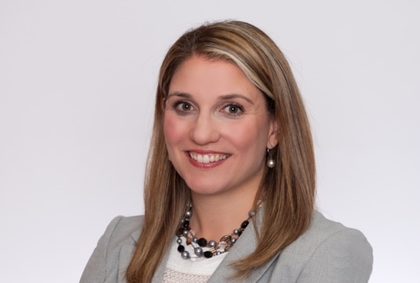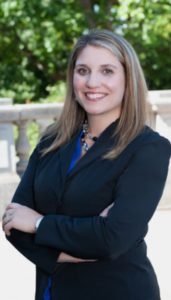
When Lauren Pitman was a high school student in Olympia, her first job was at the Capital Place Retirement Center. She served meals to the residents and discovered something that would guide her choices for much of her life; she loved talking with seniors and enjoyed their company.
 As a student at Cornell University, she completed an internship with the New York State Legislature, working with a member of the committee for aging services and learning from lobbyists working on behalf of the seniors. With the intention of becoming a lobbyist to fight for the elderly, Pitman finished her degree in Policy Analysis and Management at Cornell and applied to Seattle University School of Law.
As a student at Cornell University, she completed an internship with the New York State Legislature, working with a member of the committee for aging services and learning from lobbyists working on behalf of the seniors. With the intention of becoming a lobbyist to fight for the elderly, Pitman finished her degree in Policy Analysis and Management at Cornell and applied to Seattle University School of Law.

One of her first courses was in Trust and Estates. Taught by a professor with a reputation for being rather “dull and very grumpy,” it was a not a favorite class of the law students. “The subject matter was very dense and the professor difficult, but I loved the class and the topic, and it lead my studies down the estate planning path,” says Pitman. “Estate planning can be a puzzle, and I enjoy figuring out each new challenge. Helping my clients achieve their goals while considering other important factors, such as potential tax obligations, can be very satisfying.”
While the idea of planning for your estate lends itself to thoughts of mansions and very large bank accounts, this is often not the case. Estate planning is important for everyone. “It isn’t about how much money you have,” says Pitman. “Your estate is simply what you own and what you have worked for. I want to help you protect it, achieve your goals for the future, and help you arrange your affairs in a way that will carry out your wishes.” For these reasons, a comprehensive estate plan includes more than just the preparation of documents, such as Wills, Trusts, Powers of Attorney, and Living Wills. An experienced attorney can help you prepare for life’s emergencies, anticipate likely scenarios, and identify potential hurdles to create a plan just for you.

Pitman appreciates the trust families put in her to shape and protect their legacy, including donating money to a favorite institution, ensuring their children are provided for, or simplifying finances for a grieving spouse. “Having an estate plan in place can provide comfort to someone who is worried about their family after their passing, because it helps provide families with clear direction during challenging times,” says Pitman. By eliminating ambiguity about the intentions of the decedent, a specific plan allows everyone to be clear about your intentions. “I can help a grieving family put their financial world back in order,” says Pitman.
Pitman stresses that estate plans can be far more affordable than you think. However, not having an estate plan can cost thousands of dollars when assumptions – often incorrect – have been made about the law.

Pitman and her legal partners make themselves available at speaking events to help educate the community on how to protect their financial interests and legacies through estate planning. “We believe helping to educate the public is an important part of our practice,” explains Pitman.
Pitman’s care for families extends beyond her work at the firm. She has spent the last four years on the board of the Hands On Children’s Museum, and is currently serving as Board President. The Museum’s recent fundraising event was the most successful in its history. Pitman has helped steward the Museum through some of its biggest growth in recent years.
As a wife of an elementary school principal, the mother of two young children, and the daughter of aging parents, Pitman understands the importance of multigenerational estate planning.
To learn more about Lauren Pitman and her firm Lifetime Legal, call 360-754-1976 or visit www.lifetime.legal/.



















































